Category Archives: Communication
The Letter to Your Donor Family. The Most Important Thank You Note You Will Ever Write
By Bob Aronson
 One of our most popular blogs is “ The letter – how to write to your donor family.” https://bobsnewheart.wordpress.com/2012/11/14/the-letter-how-to-write-to-your-donor-family-2/
One of our most popular blogs is “ The letter – how to write to your donor family.” https://bobsnewheart.wordpress.com/2012/11/14/the-letter-how-to-write-to-your-donor-family-2/
It is so popular (scores of hits every day) that we thought it might be helpful to offer more examples of transplant recipient letters to their organ donor families.
Before we get into the letters, though, let’s quickly review the criteria for writing a letter to your donor or donor family. I checked a half-dozen highly respected organizations for their advice to letter writers and they all say pretty much the same thing.
As an example we’ll use the advice from LifeShare Oklahoma http://www.lifeshareoklahoma.org/family/donor.php Here’s what they say:
Writing to Transplant Recipients and Donor Families
The decision to write to the transplant recipients or donor family is a very personal one, and may not be right for everyone. Sometimes, donor families and transplant recipients choose to correspond to share information about themselves and their loved one. For some families, this sharing helps with the grieving process and also allows transplant recipients the opportunity to express their gratitude for the gift of life.
If you would like to write to your donor family or transplant recipients, here are some general guidelines to help you.
Provide General Information:
- Keep identities anonymous and confidential. Avoid including any last names, street addresses, city names or phone numbers.
- You may want to include your name or your loved one’s name (first name only) as well as information about you/their job, family and friends, hobbies and interests.
- If you are including religious comments, please consider that the religious beliefs of the transplant recipients or donor families are unknown.
Closing your letter
- Identify your relationship to the donor or recipient, for example donor mom, donor wife, transplant recipient, recipient’s mom, etc…
- Sign your first name only.
Mailing Your Card Or Letter:
- Place your card or letter in an unsealed envelope.
- ·Include a separate piece of paper wih the donor or recipient’s full name, date of donation or transplant, the hospital where the donation or transplant occurred and our full name and relationship to the donor or recipient (Also include your contact information to be used by the hospital or your OPO).
- Place these itemsin another envelope and mail them to: Editor’s note…Check with your transplant coordinator as to where they letter should be sent. Should it go to the coordinator, the OPO or somewhere else).
Allow Extra Mailing Time:
- It may take a few weeks after you’ve mailed your card or letter for the donor family to receive it. Letters will be reviewed to ensure confidentiality
Writing the thank you letter is a difficult task at best because you are writing to a total stranger about whom you know nothing while trying to show humility and gratitude. That’s not easy so we searched the internet for examples and found these that seem to hit on all the necessary points.
PLEASE NOTE…the advice above is well considered and time honored but there is always more than one way to accomplish an objective. Below you’ll find letters that follow the guidelines but on occasion stretch them a bit or cut some corners. The best advice Bob’s Newheart can give you is this, Remember always that you are writing a letter to the loved ones of someone who died and gave you the gift of life. The letter is being written to thank thank them. As in all communications your message has a better chance of being gratefully accepted if you write it wiht the audience clearly in mind. Put yourself in their place. What would you like to hear from the recipient? Once you know that, then you should write your thank you letter from that perspective.
Clearly, wrriting the thank you letter is a difficult task at best because you are writing to a total stranger about whom you know nothing, yet you must show both humility and gratitude. That’s not easy so we searched the internet for examples and found these that seem to hit on all the necessary points.
First – from the Gift of Hope http://www.giftofhope.org/for_the_public/donor_families_recipients/sample_letters/donor.htm
Dear Donor Family:
I am the 28-year-old male who received the precious gift from your loved one. I know that there are no words that can truly express my 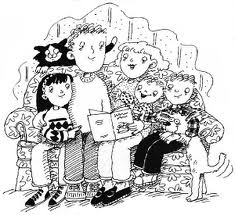 feelings for your family; it takes a special kind of person to make such a sacrifice in their time of grief and need. I would like you to know that your loved one and your family are in my thoughts and prayers every day. I know I will never be able to thank you enough for giving me a second chance at life. I can promise you that I will try to live up to the example set by your loved one and help other people.
feelings for your family; it takes a special kind of person to make such a sacrifice in their time of grief and need. I would like you to know that your loved one and your family are in my thoughts and prayers every day. I know I will never be able to thank you enough for giving me a second chance at life. I can promise you that I will try to live up to the example set by your loved one and help other people.
I thought you might like to know how things are going. The doctor says everything is progressing extremely well. I have had no signs of rejection and the kidney is functioning extremely well. It has been about two months since the operation at the time I am writing this letter. I would have written sooner, but I wanted to make sure everything was working out so that I could show you what has been accomplished by your family’s decision to donate.
I would also like to say how sorry I am for your loss. I would give it all up to put your family all back together again. It is nice to know that there are such special people in this world who care about other people so much.
Saying thank you just doesn’t seem like enough when what somebody does is basically save your life. I sincerely hope that life treats your family to nothing but happiness and prosperity. If there is anything you would like to know about or from me, please don’t hesitate to ask. I just want to say thank you again.
God Bless You.
Signed,
One extremely grateful man.
-0-
The following letter was written by a double-lung recipient to
his donor family:
Dear Donor Family,
For the first time in more than two years today, I was able to walk more than three miles without being short of breath. Just a week and a half after my lung transplant, I was able to walk over a mile without my fingers turning blue, or having to rest every few steps. Just  under four weeks ago, I could barely walk around my apartment without being constantly hooked up to oxygen. My life was drastically different four weeks ago.
under four weeks ago, I could barely walk around my apartment without being constantly hooked up to oxygen. My life was drastically different four weeks ago.
My name is Eric and I am a graduate student in Illinois studying speech and language pathology. Before I received my transplant, I was looking at the possibility of being unable to finish graduate school, having to withdraw from my program of study, as I was unable to do little things without the constant support of supplemental oxygen; even with oxygen, I became short of breath and had to stop my daily activities. Since the transplant, I haven’t required any more oxygen and I am back to many of my daily activities. As soon as I finish recovering, I plan to return to classes and resume my clinical responsibilities. With any luck, my return will come some point during this fall. Upon finishing my graduate degree next summer, I intend to take a clinical fellowship position and then possibly continue my education in medical school.
In addition to my life as a student, I am an avid photography enthusiast. Over the past two years, my ability to participate in my photography had dwindled to nothing. With time, I intend to become active once again with my photography. It is an activity that I have missed so much since my illness began taking over my life over fours years ago. I cannot wait to take the trips that I had to put off, and I cannot wait to be able to carry my own gear and camera without the assistance of others.
Despite having difficulty breathing since my freshmen years of college, I had no idea how sick I was until just over a year ago. I had noticed that I was having increasing shortness of breath doing simple tasks, and was given a variety of reasons about why I was having difficulty. The guesses kept coming and so did the worsening of my condition. A routine chest X-ray last summer, almost one year to the day that I received my transplant, following a bout of bronchitis showed substantial abnormalities. Over the course of the following two days, my life crumbled. I was admitted to the hospital where various procedures were conducted, and more than one doctor told me that I would likely be dead and definitely crippled within a few years if nothing was done quickly, but none of the doctors knew what was causing the problem. All anyone knew was that my lungs were becoming scarred and inflamed and they were quickly losing any residual function.
By September 2003, I knew that I would need a transplant if I were going to survive much longer. My lung disease was progressing rapidly and not responding to any of the drug treatments that I was offered. In late November I began the process of being added to the UNOS waiting list, and by the first week of December I was listed.
Over the months, my life was put on hold as my condition quickly deteriorated. I was told that I was lucky to be transplanted so quickly, but I do not know how much longer I could have lasted emotionally. Those months were a huge strain on my family and me. I was in Illinois and my family was in Florida. When I was dealing with the emotional roller coaster of my family, I was buried in work from my classes.
This past year I missed so much of my life. My personal life was non-existent, and I spent my time sleeping, studying or eating (and sometimes just sleeping because I had no energy to do anything else). For the first time in eight years, I was unable to volunteer as a senior staff member at a camp for children with diabetes. Camp had become a home away from home for me and being unable to attend was incredibly difficult for me emotionally. I sat tethered to my tank, while friends from camp called to wish me well, not sure if I’d ever make it back for another session. I also had to stop volunteering for the Red Cross, where I had previously been a CPR for the Professional Rescuer and Lifeguarding Instructor. I spend much of my volunteer time at the Red Cross teaching nurses, paramedics, lifeguards and other professionals how to perform CPR and administer oxygen. As soon as I heal from the transplant, which will no doubt take some time, I plan to resume all of these activities. Without your generosity, I might never have had these opportunities.
I have been given a second chance at life, and I have no intention of wasting a second of it. With some physical training, since my lung disease took severe toll on my physical condition, I hope to complete the Hustle Up the Hancock in Chicago next year, where participants climb 94 stories of stairs to observation deck. Before my transplant I could barely climb one flight, 94 stories would be a huge accomplishment. Right now, however, I am happy just to be able to climb one flight without becoming short of breath. Even this ability is new since the transplant. Last month, I was taking the elevator everywhere or stopping every five steps to stop and catch my breath. Keeping up with my friends and colleagues was impossible.
While I know your decision to donate your loved one’s organs must have been very difficult, I also want you to know what a difference your decision has made in my life. I now have the hope of living a more normal and active life. Regardless of how normal my new life ends up being, it will be a better life than what I was living, and I will be alive. I will never be able to fully express my gratitude to you for giving me this opportunity. I realized that you are going through a difficult time with the loss of your loved one and I respect your right to privacy, but I would really like to know where the miracle that I received came from. I have absolutely no information about your family or loved one. I hope the information that I have provided to you brings you some solace that some good came out of this tragedy. Thank you for making the decision to save my life, the life of someone you have never met.
With inexpressible gratitude,
Eric
-0-
University of Miami http://surgery.med.miami.edu/laora/donor-family-services/donor-family-and-recipient-communication/
Sample Letter:
Dear Donor Family,
It has not been (3 month, etc.) since I received a heart transplant.  I want you to know that I continue to give thanks each day for this gift of life and think of you and your family often. I am sorry for the loss of a loved one. I know how hard it must be to live without him/her. I hope you can find some comfort in knowing my life has changed because of your generosity and compassion. I have returned to college and will be celebrating my 24th birthday next month. It would be great to meet you one day if you feel comfortable with that (optional). My greatest thanks for a second chance at life.
I want you to know that I continue to give thanks each day for this gift of life and think of you and your family often. I am sorry for the loss of a loved one. I know how hard it must be to live without him/her. I hope you can find some comfort in knowing my life has changed because of your generosity and compassion. I have returned to college and will be celebrating my 24th birthday next month. It would be great to meet you one day if you feel comfortable with that (optional). My greatest thanks for a second chance at life.
Sincerely,
Peter
-0-
Dear Family,
I am sure this letter may be difficult to read. It is difficult to write. It is both painful and joyous. The reason I am writing is to thank you.
“Thank you” is an expression which is used quite often and sometimes just in passing. This is a different kind of “Thank you.” It is a “Thank you” that defies English, French or any language.
How do you say thank you that means that because of you and your daughter, I am alive to speak any words at all? I am alive at fifty-one years to continue living.
My promise to you is that I will never waste one moment of my life The importance and immense meaning of the gift you and your daughter have given me, truly cannot be expressed in words.
I can try, though. I must try, because I think you should know that this life that was saved is a life of promise. My promise to you is that I will never waste one moment of it.
I have two grown children of my own. I am a mother, a musician, an artist and a spiritual person.
If you can imagine it, before the gift your daughter gave me, it was becoming very challenging to do anything in my life. Brushing my teeth required effort. Eating became difficult. Even with oxygen, I still had to be in a wheelchair if I wanted to go out.
How do I share with you that you gave me life back? That you gave me a better life? My children and my husband thank you. My friends thank you.
And I think you should know that not one day goes by that I do not think of the generous spirit of yours, and of the woman who enabled me to breathe again.
There is a television commercial that says, “When you can’t breathe, nothing else matters.” That is, indeed, true.
To add to that, as a singer and a songwriter, I thought my music was gone forever. As a mother, it became more difficult to see the pain in my children’s faces.
I want you to know something else.
When I got the call they had found a donor for me, and that this person was a young woman, I thought of my own twenty-two year old daughter, who rode with me in the ambulance to the hospital for the surgery.
I cried during that whole ride to the hospital. Not because I was scared or happy. I cried because I knew that on that day, somewhere, a family lost a precious, beloved person in their life.
My heart was with you and is still with you.
She is with me, literally, with every breath I take. On a more positive note, please know that this woman, who gave me the gift of life, is my hero. I literally owe my life to her and to you, who had the bravery and strength to allow this procedure to take place in the midst of your grief.
Please believe me when I tell you that, to me, your daughter is an angel. She is on my shoulders; she is like a butterfly in my garden.  She is the music inspired by Beethoven; she is a painting from the heart of Da Vinci. She is the Book written by the hand of G‑d; she is a rainbow and a sunset. She is the most beautiful person I have never known, and I carry her within me. Every day.
She is the music inspired by Beethoven; she is a painting from the heart of Da Vinci. She is the Book written by the hand of G‑d; she is a rainbow and a sunset. She is the most beautiful person I have never known, and I carry her within me. Every day.
Yes, please know that her spirit lives. I hold her in my heart. And she is with me, literally, with every breath I take.
May G‑d Bless You for giving me my life back. For giving me a new life with no more pain. A life where I don’t have to fight for every breath I take.
I love you without knowing you and I am here as living proof that life goes on.
I promise to take good care of her. I promise to honor her with everything I do, especially for others who have suffered like me.
If you have any special requests at all, just let me know.
With all my heart, I wish you peace. I wish you love. And above all, faith in knowing that this beautiful woman has allowed me to live again.
Your daughter, in life and in spirit, is a miracle. I am her miracle.
Thank you.
With all the love from the deepest part of my heart,
M.P.
-0-
http://www.heart-transplant.co.uk/donorletter.html
Sample Letter
Dear Donor Family,
“ Thank You” these two words seem so
inadequate for the gift of life you have
given to me.
You have given me a second chance to
live and many tomorrows. I will be able to
see the sun rise and set, feel the rain and
sun on my face, hear the wind in the trees,
and listen to the birds sing. I will be able
to hug and be hugged.
I must offer my deepest sympathy for
your loss, mere words from a stranger, but
heartfelt just the same. Perhaps, in your
generous donation your family and mine
will be able to “Celebrate the Life” of loved
ones both past and present.
I know nothing about the donor only
that they must have been kind, caring,
compassionate, and generous, something
they had to have learned from you, their
family.
I feel that each new day has endless
possibilities, and that my horizons are
without bounds. I only hope that I am able
to justify the use of this wonderful gift.
I could make you promises of what I
would do to make our world a better place,
but we all know that promises tend to be
broken and time can cause us to forget,
but know this, not a day, not an hour, or a
minute will go by without my thinking of
the donor and their family who without I
would not have had a chance to live.
Thank you from the bottom of my heart.
The recipient
-0-
News Story
A mother who was brought back from the brink of death by a liver transplant days after giving birth to her daughter is among dozens  of people whose moving letters of thanks to their organ donors were published yesterday.
of people whose moving letters of thanks to their organ donors were published yesterday.
By Heidi Blake
7:30AM GMT 10 Nov 2010
Helen Eccles, 49, was eight months pregnant when she went into acute liver failure in 1996. Two days after her daughter, Ella, was born, she received a life-saving transplant in an operation that left her in a coma for 18 days.
Now she has written to thank the family of the 54-year-old woman who donated the liver that saved her life.
Her letter is among dozens in a new collection, Thank You For Life, which was published yesterday by the Royal College of Physicians. The book is designed to encourage more people to donate their organs by showing how transplants can transform lives.
Mrs Eccles, an artist and life-coach from Putney, south London, said: “I nearly died, but I had something wonderful to live for, and that was my determination to mother my baby.
“That family allowed me to live, and be a mother, and see my baby grow up. How many thank you letters do you write where what you’re thankful for is your life?
She first wrote to her donor’s family a year after receiving the liver that saved her life.
The letter began: “I feel very guilty that I have taken so long to write and thank the donor’s family, but it has not been an easy letter to write. Now, however, I hope that around the anniversary of her death my letter will go some way towards alleviating the enormous grief they must feel.
“Without the transplant I would certainly have died leaving my husband to look after our newborn baby on his own. Like most transplant patients the gift of life has been amazing and words can never express just how grateful we really are.”
In her most recent letter, 14 years after the transplant, she thanks the donor again for giving her the chance to see her daughter grow into a “beautiful teenager”.
The collection was inspired by one letter written by a woman in her sixties called Joan to the family of a younger woman who had donated her liver.
The letter, which was read out by Joan’s grandchildren at her funeral, says: “I think you know that I am in my sixties. It must have been a disappointment to you that it was not a younger person’s life that was saved. And I was shocked to know that such a young life had contributed to mine. I can only say that I treasure the thought of her life, and feel so privileged.”
Rita Simmonds received three letters from patients whose lives were saved by her daughter Rachel’s kidneys and liver after the 31-year-old died in a sky-diving accident eight years ago.
The 63-year-old, who lives in Christchurch, Dorset, said the letters had helped her come to terms with her grief.
“It gave me a different perspective,” she said. “I realised that my daughter’s death had helped people and, although I was grieving, at least there was just one family in mourning instead of four.”
http://mervsheppard.blogspot.com/2010/09/organ-recipients-heartwarming-letter.html
-0-
Thurs, Oct. 15, 2009
To my donor and their family,
I don’t know who you are, or where you’re from, or how it all happened, but I do know this: whoever you are and whoever you were, you are a hero and you saved my life. To you – the family – by choosing to honor your loved ones wishes; you enabled me to have a life that I never dreamed possible. Because of all of you, I am breathing with two beautiful, perfectly healthy lungs. Because of you, I lived to see my 24th birthday.
Early in the hours of August 7, 2009, I received the much – anticipated ‘call’. After waiting 15 long months on the transplant list, I was beginning to think that it just wasn’t meant to be and that I would be that 1 statistic who would die waiting. I was 23 years old and that was my life. I had a condition called Bronchiectasis, which is the build-up of scar tissue in your lungs, the stretching of your airways, and the destruction of the tiny hair cells that are responsible for removing dust and debris. As a result, the elasticity of the lungs is destroyed and your lung function drops drastically (a week before my transplant my function was 21% out of a predicted value of 100%). Additionally, I was constantly ill with life-threatening lung infections and was on about 5 inhaled and oral antibiotics at a time. With that was the issue of fluid build-up in my lungs. My lungs were so diseased that I didn’t need a stethoscope to hear them; all I had to do was breathe ‘normally’ and the room would fill with the sounds of crackles, wheezes, pops, and other bizarre sounds. My friends joked that I sounded like a rainforest.
I was on oxygen 24/7, and simple tasks like putting socks on, showering, putting shoes on, getting in an out of the car left me gasping. Sometimes, even shifting positions while sitting on the couch left me so out of breath I felt like I would pass out. Next to the gasping was the chronic coughing. I coughed so much that people could identify me simply by hearing it. I couldn’t even laugh because I would be thrown into a fit of coughing and would be unable to catch my breath. As a result, I simply could not fathom a life with perfectly healthy lungs – lungs that didn’t debilitate me in each and every corner of my life. To take a deep breath in was something I had never even had the joy of experiencing…until now.
I don’t know if ‘thank-you’ can truly encompass just how grateful I am for this gift called life. To be honest, I don’t know if I will ever truly be able to wrap my head around this fact: what have I done to be so lucky and so blessed to receive such a precious gift? How can I celebrate each and every day knowing that with every breath I take, there is a wonderful family out there grieving, and I am benefiting from their loss? If there is one, (out of many) things I want you to know, it’s that with every breath I take, I say ‘thank-you’; with every new experience I am fortunate enough to be part of, I say ‘thank-you’. Every morning I wake up, I say ‘thank-you’. Every deep breath I take, I relish. I cannot describe to you the elation I feel when I feel these beautiful creatures expand in my back and inflate all the way to the bottom of my ribcage. To normal people they probably don’t notice something like this, but it makes me stop every time it happens, and I find myself doing it again, and again, and again, just because I can, because it feels good, because once upon a time, I couldn’t. Because taking that breath means ‘life’, and it’s the reminder that due to a complete strangers generosity when their journey on this Earth was completed, they had the forethought to consent to donate and to let someone else benefit from something they enjoyed just as much.
How can I possibly say ‘thank-you’ for something like that? 8 letters isn’t long enough. 8 letters isn’t enough to grab onto all the emotion that I’m feeling as I write this. It isn’t enough to encapsulate the emotions I experience day to day when my donor crosses my mind.
There is much that I want to do to make the most of this amazing experience. I had to take a leave of my university studies when I got listed, and am hoping to resume them in the winter and complete my degree next fall. I want to travel to destinations far and wide. Most exciting of all is that I want to partake in the 2011 World Transplant Games in Sweden in 2011!! It isn’t so much the big things that are most frequently showing up on my list, but the small. I walk daily – for hours on end sometimes – just because I can and because it is so effortless. I look forward to when I can dance again as well. I am looking forward to going to beach with friends and celebrating the small things that took every ounce of effort I had just 2 months ago. But I have to say that next to loving every breath I am fortunate enough to take, laughter is right up there as well. I love laughing now. Gone are the days of the ‘smile and nod’ technique when something funny happened, because if I let myself laugh out loud I would only be rewarded with a huge, disgusting coughing fit. Now – even though no sound comes out yet – I can laugh, and laugh to my hearts content and it feels wonderful. I talk louder, I yell louder (ha ha), and I eat faster because I can breathe and eat at the same time now!! I am also enjoying new things that I never liked before, like seafood. I couldn’t stand the smell or even the thought of consuming a sea creature prior to transplant, but now I fear if I ever go swimming in the ocean, I may just eat something right off the ocean floor.
It is hard for me to think of what to write next, what else to elaborate on because there is so much and yet not enough. While my progress has been wonderful and I’ve been fortunate enough to have no complications, I know that out there you are grieving. If there is one thing I would like you to know, it’s that in all of this, I have not forgotten you, the family. I have lost friends both pre and post transplant, and I also lost one of my best friends in high school, who ended up being an organ donor herself. She alone saved 11 people, so in one small aspect I understand the organ donor card on both sides, being the friend of a donor and now, a recipient. Throughout it all, one thing remains the same: you do not forget.
I guess I should end this letter. I hope that in the process of reading this I have neither hurt nor offended you in any manner. That is not and never was my intent. I would love to hear back from you, but I completely understand if you choose not to respond. Please know you are in my thoughts and prayers daily, even though that most likely doesn’t make your loss any easier. I wish you all the best, and hope that each memory you have of your precious loved one brings a shine to your eyes, laughter to your lips, and a smile big enough to light up the room.
To my donor: I don’t know who you are, or what happened, but I do know this: you are a rock star, and a hero to me. I hope that wherever you are in your after life, that you landed on the shiniest star and got the best seat in the House.
Much Love to You, B.
-0-
Friday, August 6, 2010
Much like a child carries around and protects their favorite stuffed animal, I have done the same with your letter. Ever since receiving it on August 3rd, it has not left my sight or my hands. If I leave the house, it comes with me. If I go to bed, it sleeps on my dresser. And anyone who knows me, has read it and been brought to tears by the things you so kindly shared with me.
A year ago today I can recall exactly what I did: I baked 2 loaves of bread, one being cheese and onion. I had caught up on phone calls and emails and was mentally making sure everything at home would be okay. I knew I was dying. I couldn’t brush my teeth and breathe at the same time without having to lean over the counter and rest to take a breath. Using 5L of oxygen didn’t matter – I simply couldn’t do it anymore. I was simply exhausted in every which way imaginable, and the sheer physical pain of feeling your lungs shrivelling up and dying within you was unfathomable.
I was just 23 years old, and this was my life.
At 12:45am on August 7th, the phone rang, saying that a pair of lungs had become available for me. We rushed to Toronto only to end up waiting 18 hours until surgery began. In that time we sat and waited in a freezing cold ICU room while everyone around me ate Tim Horton’s and I could only feast on ice chips. The hours dragged on, but I knew everything would work out. And it did, and continues to do so, because of your husband and father and your selfless act of honoring his wishes to donate his organs.
One year later things are very different. I am healthy, I am pink, and I am breathing the way a normal 24 year old girl should. This morning I woke up bright and early and took one of our dogs for an hour and a half walk with my sister. Then I made a cup of tea and lounged on the couch with the other dog and watched Shark Week. My how things have changed.
But the thought that somewhere out there your family continues to grieve is enough to bring me to tears. You will never know what your donation has done for my family and I. I cannot put into words how it feels to take a deep breath in and feel it resonating at the bottom of my lungs. Seeing my chest rise and fall the way it should, instead of having it never move and breathing with my stomach as I used to never seize to amaze me. It is a sensation that will never grow old.
In two weeks, I will turn 25.
Your letter gave me so much information that I will cherish always. I am excited to compete in the World Transplant Games in Sweden 2011, and ironically enough (even before I received your letter) my sport/event of choice was cycling. I’ve always loved it, and just recently got back into it. If cycling doesn’t work out I will most likely compete in one of the walking events. I love to walk, and I can do so for hours on end without any destination in mind, just so long as I can be moving and enjoying nature around me.
The day I received your letter I was up North with my dad, and he was showing me the town he had grown up in. We were at the dam he used to swim in when I suddenly burst out, “we could have gone fishing!” which is bizarre, seeing as I’ve never expressed any interest in ever doing so, and will be the first to admit that the thought of catching let alone touching a fish is enough to make me scream and gag all over the place. But in that moment, I was overtaken with the urge to go fishing, and then I got your letter in the mail that night and read that fishing was one of your beloved’s passion. Needless to say, now I must go fishing!
This fall will see me finishing up my anthropology degree. Ideally, I would love to work in a hospital dealing with patients waiting for transplant. I just need to be doing something that gives back and helps others, in any way shape or form. It has become a passion of mine and I do not mind being a voice and face for transplant.
In my spare time I love to write, and I have a blog that chronicles my transplant journey from the moment I found out I needed one up until now. I will continue to write it for as long as blogs are around! I also love to read – I think I love to read almost as much as I love to breathe – and, I never leave the house without a book in my purse. Genre of choice has to be historical fiction, and my favorite series of all time is Diana Gabaldon’s Outlander series. The best thing in the world to do on a rainy weekend is to wear your favorite pair of sweatpants, and a sweater, with an endless supply of tea, curled up with an amazing book that you can get lost in. I love losing all sense of time and being enamoured by an author’s ability to make all time and space fail to exist around me. Next to this, is reading out on the deck on a warm summer’s night, with the stars above to guide your eyes. That is my favorite passtime.
As for projects, my dad and I are embarking on a genealogy journey, tracing all sides of the family. Needless to say, it’s a frustrating and rewarding process, and a fascinating one at that. I love learning about where I came from, and how we got here, and when we did. I feel that it is imperative to know your roots.
 Summer is my favorite season, with fall coming in second place. I love sleeping with my window open on a cool summer night, with the blind all the way, so that when the sun rises in the morning to wake up the world, I can be witness to it time and time again. As for fall, I love the colors, and the smell of the leaves, and the food. Being a baker and a cook, it’s so exciting to make homemade soups to warm everyone up on a fall day. And I admit – almost ashamed to – that I revealed to my mother the other day that I was excited for Thanksgiving, even though it’s 2 months away, ha ha. I can’t explain why exactly I am excited for Thanksgiving so soon, but I just love getting together with family and seeing how everyone is doing and where they are at in their lives. I make a point to never lose touch with anyone, and to always let them know that I am thinking of them.
Summer is my favorite season, with fall coming in second place. I love sleeping with my window open on a cool summer night, with the blind all the way, so that when the sun rises in the morning to wake up the world, I can be witness to it time and time again. As for fall, I love the colors, and the smell of the leaves, and the food. Being a baker and a cook, it’s so exciting to make homemade soups to warm everyone up on a fall day. And I admit – almost ashamed to – that I revealed to my mother the other day that I was excited for Thanksgiving, even though it’s 2 months away, ha ha. I can’t explain why exactly I am excited for Thanksgiving so soon, but I just love getting together with family and seeing how everyone is doing and where they are at in their lives. I make a point to never lose touch with anyone, and to always let them know that I am thinking of them.
Last winter I seriously thought of cross-country skiing, but being on the small side, I had horrible visions of myself falling down and breaking my legs and ending up shorter than I am. But now that I know that your beloved father and husband had a passion for cross-country skiing, I will summon up the courage and give it a go. Due to the fact that they had to break my sternum for the transplant, contact sports are forever out of the question, so cross-country skiing will be a nice alternative I think.
As for other things I am passionate about: I love tea (especially black teas), baking, cooking, macaroni and cheese, cheese by itself, chocolate, apples, pancakes, bacon, frequenting farmers markets, running yellow lights, mauling my poor cat, marvelling at the blessings life has given me, being entirely too philosophical at times, making friends, laughing, being outdoors playing piano, and sweatpants. I love hot temperatures (this 35C/94F plus weather has been heaven!) thunderstorms, and prefer to have windows open instead of having air conditioning on. I love history in all its forms. I love home renovation shows and would love to live in an old stone house. I am excited to travel, and would love to visit the eastern provinces here in Canada. I feel especially drawn to Newfoundland. I have been to Nova Scotia and loved it to bits, but I feel like Newfoundland is calling me for some reason. I think the scenery and the incredible view of the ocean will be spectacular, and my friends and I have spoken of taking a train out there at some point. I hope it comes to fruition.
I am not an alcohol drinker by nature, but tomorrow I will try my first ever drink of scotch in honor of my amazing donor. I’ve been warned it packs a punch, so if I don’t end up flat on the floor from its impact, you will continue to receive letters from me and know that I fared ok in its aftermath.
-0-
Saturday, August 7, 2010
It has been one year since my transplant took place. At 7:20pm I was wheeled into the OR and my new life officially began. Today I celebrated with my family, and did my first ever shot of scotch with my parents in honor of my donor, your husband and father. I knew it would burn but no one ever thought to warn me that it tasted like leather. My dad then made a toast to your family and thanked you for the gift that you so selflessly gave to me one year ago. We acknowledged the pain and grief you must still be feeling, and I said a silent prayer that you find release from it.
I guess I have blabbed on for long enough and should end this letter. Again, I would love to hear back from you. I hope this letter can again offer you some comfort, and I hope that the sadness in your heart is giving way to hope. Not a day goes by when I don’t think of your wonderful family, and I give thanks and say a prayer for you every day that goes by.
With love and hugs and resonating breath,
Your (grateful) ‘third child’,
P.S. Enclosed in this letter is my favorite recipe to bake: Scottish Scones. A buttery scone full of cinnamon-y goodness, I hope you love this recipe as much as my family and I do! Perfect for a cold fall day and Christmas season – and yes, I realize it is far too early to be thinking of those things just yet!!
-0-
The preceding letters are but a few of the thousands I found on the Internet. I hope they gave you some good ideas for writing yours. And…remember you are not limited to one letter even if you don’t get a response there is no harm in writing, plus…it feels good to do it.
-0-
 Bob Aronson of Bob’s Newheart is a 2007 heart transplant recipient, the founder of Facebook’s over 4,000 member Organ Transplant Initiative and the author of most of these donation/transplantation blogs.
Bob Aronson of Bob’s Newheart is a 2007 heart transplant recipient, the founder of Facebook’s over 4,000 member Organ Transplant Initiative and the author of most of these donation/transplantation blogs.
You may comment in the space provided or email your thoughts to me at bob@baronson.org. And – please spread the word about the immediate need for more organ donors. There is nothing you can do that is of greater importance. If you convince one person to be an organ and tissue donor you may save or positively affect over 60 lives. Some of those lives may be people you know and love. You can register to be a donor at http://www.donatelife.net Then, tell your family.
“The Letter” How to Write to Your Donor Family
Writing a personal letter of gratitude for an organ donation is the ultimate humbling experience. How do you begin to thank someone for saving your life? Words don’t seem adequate when you would like to hug someone and hold their hand while you say think you. It would seem almost impossible to express the gratitude you and your family feel.
Because of circumstances, though, words are your only choice therefore they should be carefully considered and come from your heart. Your letter should show an appropriate amount of thoughtfulness and sincerity, it should not gush or be overly emotional. Balance is the key.
A handwritten letter is always best but, if your handwriting is like mine, a typed letter will be much easier for the recipient to read.
When you write, and I say when because “if” is usually not even a consideration , you should not only write and edit it yourself but also have someone you trust look it over. Then read it out loud to the person to determine how he or she feels upon hearing the words. This letter can be like no other you have ever written, because you will be talking to a total stranger; a family who lost a loved one and whose organ or tissue is now helping to keep you alive. Remember no matter when you write that the family may still be grieving.
Your letter cannot be sent directly from you to your donor family. It must go through your transplant center. Talk to your coordinator or social worker about where to send you letter so it can be forwarded to your donor family.
Why A Thank You Letter is Important
Saying thank you is as much about the writer as it is about the reader. It is a social grace that benefits both parties equally. Organ donation is a powerful reminder of just how wonderful gift giving can be…especially when the gift is one of life.
The death of a family member is a horrible experience, regardless of the nature or time of death. When organ donation is a consideration the experience can become even more traumatic because while in the depths of pain and grief families must also make the decision to help others who are critically ill by donating their loved ones organs and/or tissues. Knowing first-hand how the recipient’s life has changed and what they have been able to do since their transplant can help give meaning to the senselessness surrounding their loss. Sharing such the emotions of a life saving experience can the organ recipients recovery as well as helping the donor family through their grieving process.
Key Components of a “Thank you donor family” Letter
- Write your thank you letter by hand if possible because it indicates thoughtfulness and caring, and gives it the attention it deserves. If you type the letter explain why you are doing so.
- Always keep in mind who your audience is. It is the donor family, not yourself. Don’t lose sight of that simple fact.
- Take the time to think and draft your letter before you write: It should be error free and look professional so the reader knows you gave it considerable time and consideration.
- Do not use canned and expected language. Avoid clichés and “Sympathy Card” pseudo poetry but you can include a brief quote from a famous person.
- Sincerity is key: avoid exaggerations and focus on highlighting a few specifics about the gift so as to remain credible with your message
- Compose a well thought out closure: think about a special close that truly encapsulates the spirit of your letter
What to say and what not to say
In this first letter it is important that all parties remain anonymous. You should not include any information that might lead to your identity. That means you should not include last names, streets or numbers, email addresses names of hospitals and names of physicians and staff. If there is further correspondence or contact and both parties agree to exchanging identities then and only then is it appropriate to do so.
The safest assumption you can make is that the donor family is still grieving, regardless how much time has passed. Communicating with sensitivity is of utmost importance.
Here are some suggestions of what to include in your letter but remember, it must come from the heart and the words must be yours:
- Open your letter with “Dear Donor Family”
- Thank the donor family for their gift
- Speak about your transplant experience – consider including details surrounding your wait, the surgery and recovery
- Elaborate how the transplant has changed your life
- Use first names only and talk about yourself and your family
- Mention your occupation and any activities which you once again can enjoy
- Include photos (void of identifying information)
Sample Organ Donation Thank You Letter
Date
Dear Donor Family:
On August 21, 2007 I received a heart from your loved one. You, he and it saved my life. I promise I will take care of this gift far better than I took care of my own natural organ. Each day before I get up I take a moment to feel this marvelous gift steadily thumping in my chest. It is alive and healthy and has created in me a new appreciation for life.
More than that, though, I am always aware that this heart is not mine. It belongs to the kind of person all of us should aspire to be. Moreover, he came from the kind of people all of us should aspire to be. Maybe it is my imagination but since receiving my new heart, I feel a serenity I have never before felt. I feel a concern for others far greater than I thought possible. I feel a responsibility to all organ donors and their families to do what I can to honor their loved ones by committing the rest of my life to promoting organ donation.
I was very sick prior to my transplant. I could no longer get around very well because my heart just could not pump efficiently enough. I knew I was dying and as a 68 year-old man with COPD and B positive blood, I did not think a transplant was in the cards. But it was. As a result, I believe that God saved me for a reason and that reason was to promote organ donation to honor you and your loved one.
I appreciate the simple things now, much more than before. I look forward every morning to seeing my loving wife and caregiver, Robin. Staying in contact with family and friends has become more important than ever before. I enjoy sitting in our sunroom watching the sunrise and sunset. Each day gives me a new thrill because each day is a gift from you and from God.
I don’t know if we will ever meet and although I am likely to be at a loss for words, I would like to thank you personally. You gave me life, you gave me peace and you gave me a profound sense of gratitude and understanding. I am a new person and I hope that in your grief it helps to know that a part of your loved one is alive and that with his help I am trying to live my life in a way that would make you proud.
God bless
Bob, Robin and family
Bob Aronson of Bob’s Newheart is a 2007 heart transplant recipient, the founder of Facebook’s over 4,000 member Organ Transplant Initiative and the author of most of these donation/transplantation blogs.
You may comment in the space provided or email your thoughts to me at bob@baronson.org. And – please spread the word about the immediate need for more organ donors. There is nothing you can do that is of greater importance. If you convince one person to be an organ and tissue donor you may save or positively affect over 60 lives. Some of those lives may be people you know and love. You can register to be a donor at http://www.donatelife.net
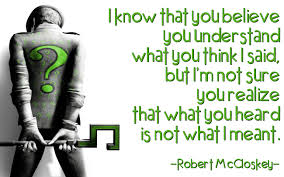
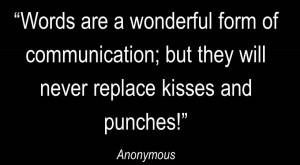
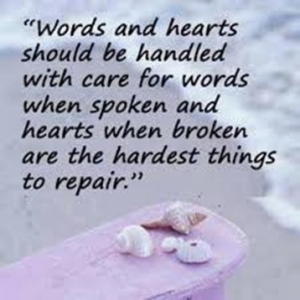
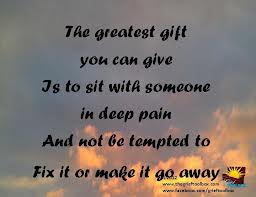

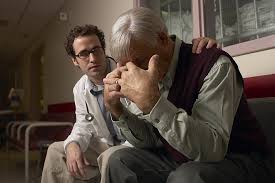
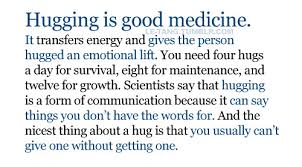


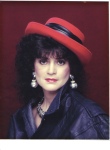

You must be logged in to post a comment.